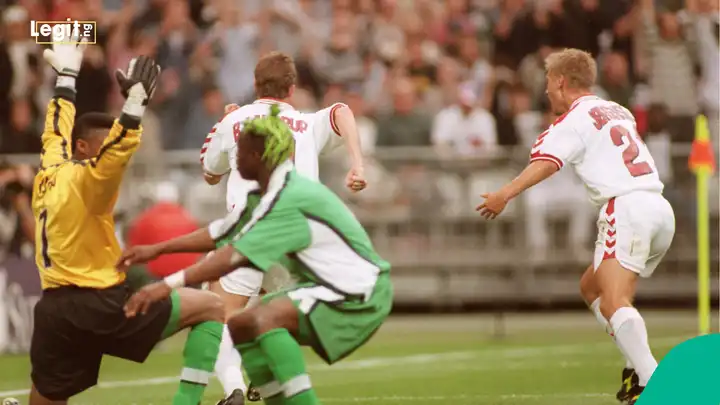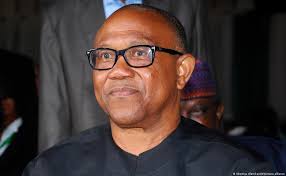
A storm was always going to follow the death of former Super Eagles goalkeeper, Peter Rufai. But few expected Taribo West’s sharp criticism of the Federal Government to spark such immediate backlash — not from the public, but from the Nigerian Football Federation (NFF) itself.
Following Rufai’s funeral on August 22, 2025, Taribo publicly condemned the government for what he described as a consistent failure to support former players, both in life and in death. He cited not only Rufai, but also late legends like Stephen Keshi and Christian Chukwu, who, according to him, were abandoned by the same system they once brought glory to.
Soon after, the NFF released a detailed statement denying Taribo’s claims and confirming that donations were made to the families of both Rufai and Chukwu. It was an unusually quick and firm response — especially in a country where silence is often the government’s default mode.
So, why did they respond so fast?
1. Because Public Image Is Everything Now
In today’s digital world, public criticism travels fast, and reputations are shredded even faster. The government and institutions like the NFF are more image-conscious than ever — and when someone like Taribo West speaks, it carries weight.
This isn’t just any ex-footballer. Taribo is a household name, a Champions League-level veteran who once played for AC Milan and Inter. He has respect, visibility, and a platform. When he speaks, Nigerians — and the media — listen.
“In an age where a single viral quote can stir national outrage, the government knows better than to remain silent — especially when legends like Taribo West are involved.”
2. The Power of Public Pressure
Social media has changed the game. Nigerians are now highly engaged, especially when it comes to national icons. The government understands that when public sympathy aligns with celebrity criticism, silence can be mistaken for guilt.
The outrage from fans, players, and commentators was building quickly. Without a prompt response, the NFF risked being painted as heartless, ungrateful, and disconnected from the struggles of its retired stars.
3. Taribo West Isn’t Just Talking — He’s Preaching
It’s worth noting that Taribo West is now a pastor. His new role adds moral weight to his words. He’s not just expressing frustration; he’s making a public, almost prophetic appeal to conscience.
This makes him more than just a critic — he becomes a voice of truth for many people, especially those who feel the government has a pattern of abandoning its heroes.
4. Political Undertones: Does Taribo Have Bigger Ambitions?
Another layer to consider is political suspicion. In Nigeria, where entertainers and sports stars have crossed over into politics, any bold public statement can be interpreted as political posturing.
It’s possible that some in government circles saw Taribo’s criticism not as a cry for justice, but as a testing of political waters. He’s a visible figure with influence — someone who could easily pivot into politics in the future.
“In a country where public influence is political capital, a statement like Taribo’s can easily be seen as a soft campaign speech — even if that wasn’t his intention.”
That kind of suspicion can make government actors act quickly — to control the narrative, or at least push back before it gains more traction.
5. The Timing Couldn’t Be Worse for the Government
The criticism came right on the heels of Rufai’s funeral, a time when emotions were still raw. Nigerians haven’t forgotten how poorly other legends were treated during their final days. So, any accusation of negligence now stings even more deeply.
The government couldn’t afford the appearance of repeating past mistakes. The faster they responded, the better chance they had of calming the storm.
6. Damage Control Mode Was Activated
Ultimately, the NFF’s response was about damage control. It wasn’t necessarily about disproving Taribo — it was about ensuring the federation wasn’t branded as callous or irresponsible. By highlighting the donations made, they sought to shift the focus from neglect to due diligence.
But whether the support they claim to have given was enough is another debate entirely.
7. Then Came the Salary Leak — Coincidence or Distraction?
After the controversy gained traction, Taribo’s 1999 AC Milan salary — reported to be £1.24 million (₦193 million at the time) — suddenly surfaced online. Fans quickly did the math, pointing out that at today’s exchange rate, that would be worth around ₦2.7 billion.
This raised another conversation: Should someone who earned that much be demanding help from the government now?
Some saw it as a deliberate attempt to undermine Taribo’s moral authority by reminding Nigerians of his wealth. Others believe it was an organic leak that simply fueled the already heated debate. Tuzzuper will keep writing you, stay tuned.




